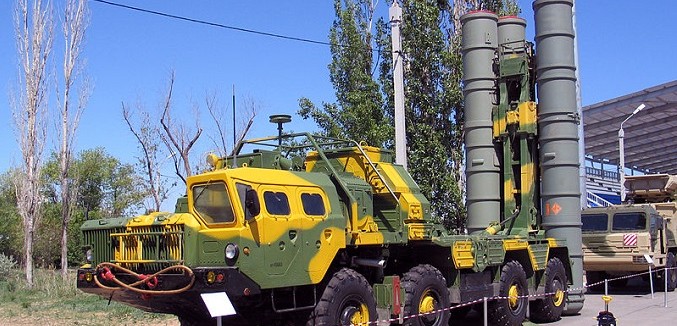Russian officials have reiterated today Moscow’s intention to deliver advanced S-300 anti-aircraft systems to Syria. The U.S. and its allies have long urged Russia to forgo the planned transfer, fearing among other things that the missiles would deeply complicate any future Western intervention against the Bashar al-Assad regime.
Russia has been noncommittal about its interests in pursuing the deal, but Russian Deputy Foreign Minister Sergey Rivkov today described the weapons transfer as a way to deter the West from military intervention in Syria:
The move is Russia’s biggest and most public step so far to bolster the government of Syria’s beleaguered President Bashar al-Assad, its longtime ally. [Deputy Foreign Minister Sergei] Rybakov made no attempt to hide the Kremlin’s intention to prevent outside forces from tipping the scales in the long and bloody civil war. “We believe such steps are to a great extent restraining some ‘hot heads’ from considering scenarios in which the conflict may assume an international scale with the participation of outside forces,” he said, according to RIA Novosti.
In addition to being able to out-maneuver all modern fighters and being hardened against electronic warfare, S-300 missiles can also be used to terrorize civilian populations. Speaking today at a press briefing hosted by The Israel Project, International Affairs Minister Yuval Steinitz explained how the missiles can be used to hit civilian planes flying towards Israel’s airport:
Steinitz warned that the S-300 anti-aircraft system which Russia is set to send to Syria can also potentially be used as an offensive weapon to shoot down Israeli civilian planes over Tel Aviv… He said that the advanced weapons platform could end up in the hands of the wrong rebel groups or make its way to Assad’s Iranian allies.
Meanwhile U.S. Senator John McCain met Monday in Syria with rebel leaders. He heard that a growing number of Russian military advisers and Iranian troops are on the ground in Syria.
[Photo:Leonidl / Wiki Commons]




